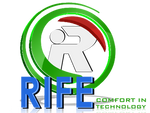The Internet of Things (IoT) is transforming healthcare by improving efficiency, reducing costs, and enhancing patient care. From smart medical devices to real-time monitoring, IoT in healthcare is creating a more connected and data-driven industry.
1. What is IoT in Healthcare?
IoT in healthcare refers to the integration of smart devices, sensors, and software to collect, transmit, and analyze health data. These technologies help doctors, nurses, and caregivers monitor patients more effectively and make informed decisions.
2. How IoT is Changing the Healthcare Industry
The internet of things in the healthcare industry is reshaping traditional practices. Hospitals and clinics are adopting IoT medical devices to track patient vitals, automate administrative tasks, and improve treatment outcomes. Real-time data sharing enhances coordination among healthcare professionals.
3. IoT Medical Devices and Their Impact
From wearable fitness trackers to implantable glucose monitors, IoT medical devices are improving diagnostics and treatment. Smart inhalers, connected insulin pumps, and ECG monitors help patients manage chronic conditions more effectively.
4. Remote Patient Monitoring with IoT
One of the most significant healthcare IoT applications is remote patient monitoring. Connected devices track vital signs like heart rate, blood pressure, and oxygen levels, allowing doctors to intervene before emergencies arise. This is especially beneficial for elderly and chronically ill patients.
5. Smart Hospitals and IoT Applications
IoT applications in healthcare are transforming hospitals into smarter facilities. Automated inventory management, patient tracking, and smart beds enhance efficiency. The internet of things healthcare applications improve workflow, reduce wait times, and optimize resource allocation.
6. Internet of Things and Medical Devices Integration
The integration of the internet of things and medical devices enables real-time health tracking. Smart thermometers, digital stethoscopes, and AI-powered imaging tools provide accurate and timely diagnoses. Healthcare providers can access patient data remotely for better decision-making.
7. Security Challenges in IoT of Healthcare
While IoT in the medical field offers numerous benefits, security remains a concern. The internet of medical things involves sensitive patient data, making it a target for cyber threats. Strong encryption, authentication protocols, and regular security updates are essential to protect patient information.
8. The Future of IoT in Healthcare
The future of IoT in healthcare industry looks promising, with advancements in artificial intelligence, 5G connectivity, and blockchain technology. These innovations will enhance telemedicine, predictive analytics, and personalized treatment plans.
9. Benefits of IoT in the Medical Field
The internet of things in the medical field enhances patient care, reduces hospital visits, and minimizes human errors. IoT-driven predictive analytics help detect diseases earlier, leading to better treatment outcomes.
10. Conclusion: The Growing Role of IoT in Healthcare
The internet of things in healthcare is revolutionizing patient care by improving accessibility, efficiency, and accuracy. As IoT and healthcare continue to evolve, the industry will witness greater automation, improved diagnostics, and better patient experiences.
